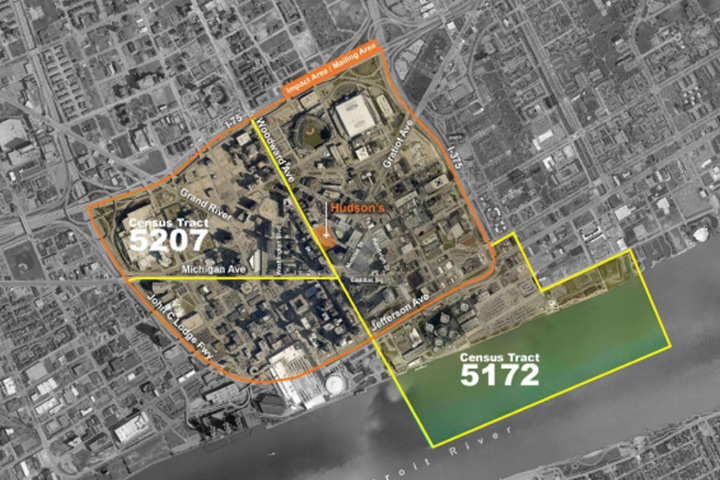Community Benefits Ordinance (CBO) Development
Community Benefits Ordinance (CBO) Development
Community Benefits Ordinance (CBO) Development
Program: Dow Sustainability Fellows Program
Program details » | All Dow Sustainability Fellows Program projects »

Team 8
(Also Distinguished Award)
Project Background and Scope
Community benefits ordinances (CBOs) are used as tools to prevent harmful development and planning decisions, by setting certain provisions concerning how developers must ensure that the community “benefits” from a project. In 2017, Detroit passed Proposal B, a CBO mandating that any developer receiving local public subsidies or tax breaks above a certain threshold must engage with a local advisory council to address community concerns in the form of community benefits. Developer’s community obligations could range from local hiring requirements to affordable housing minimums and environmental mitigations, to the inclusion of public art.
The Detroit CBO has now been in effect for a year and a half, yet many in the community are concerned that the ordinance has not strengthened community development process. We are seeking to assess what, if any, social, economic and environmental benefits have ensued from Detroit’s CBO (Proposal B). We will do so by comparing large-scale development projects, two from before and two from after the passage of Detroit’s CBO and analyzing what, if any, benefits have resulted from each. We aim to interview all relevant stakeholders in these processes including community members, developers, planners, and council members. This project will specifically address the community impact of development projects through focus groups of community members, complimenting the corresponding Dow Masters Team 8 project which focuses on stakeholder interviews. Objectives of the project would include a compilation of “lessons learned” and recommendations from the CBO process and outcomes in Detroit to provide a guide to other communities seeking to undergo this process.